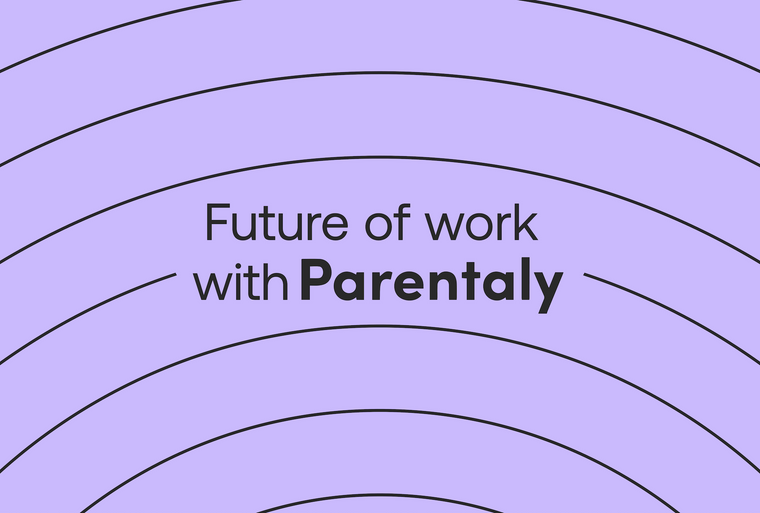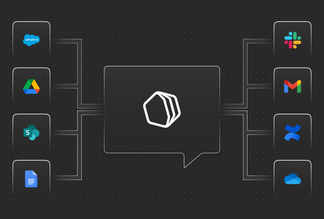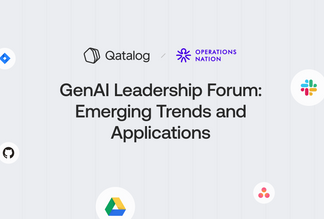
Allison Whalen on building programs that support employees
This Future of Work Q&A is an exciting one, because we reached out to Allison Whalen, co-Founder and CEO of Parentaly. Parentaly works with employers to help them optimize their parental leave and early working parenthood policies and programs. Allison works with organizations to level the playing field and has seen a lot of future of work topics come up over and over again with her clients.
What is the biggest challenge for organizations you work with as it relates to parental leave, and how are they overcoming it?
It’s now abundantly clear that companies that want to attract the best talent need to offer more paid parental leave. As a result, many companies have recently increased their paid parental leave from eight or 12 weeks to 16+ weeks. This is wonderful and it’s absolutely the way of the future.
But when companies only increase the number of weeks of parental leave – without providing the support to make the execution of this policy a success – they suffer major unintended consequences.
Teams and managers struggle to meet their goals in the absence of a key employee. Teammates are overburdened, managers don’t know how to navigate the situation, and business results suffer. Worst of all, when the employee returns from parental leave they feel lost and unsupported – and often quit or suffer career stagnation as a result.
There are many ways to overcome this challenge and build a program to support employees taking parental leave. Solutions include manager training, process guidance, checklists, coverage planning frameworks, career coaching, budget to give spot bonuses to the coverage team or bring in a contractor, a formalized return program that includes re-training and networking, and thoughtful processes around career progression, promotion, and performance reviews in the context of parental leave.
The good news is we have seen that with the right support, parental leave can actually be a positive inflection point for an employee’s career. They get to step back and really evaluate their goals and rethink their approach to work in a way that gives them greater energy and commitment going forward.
How have you seen organizations optimize for distributed/hybrid work?
The employees who go through our programs (new parents planning for – or returning from – parental leave) almost universally love working from home and feel that it has been an “equalizer” of sorts. They no longer must make a choice between rushing home to see their baby or going to an after-hours event. It’s an easier transition especially for breastfeeding mothers to have more privacy at home. Therefore, the conversations we’re having now with the employers is how do we make sure that when companies move to a hybrid environment there is still the opportunity for new parents to work from home for a period of time, if not forever?
What “future of work” topics are you paying close attention to?
There are a few things that I’m closely watching and that come up quite a bit with our clients:
-
- Moving from full-time work to part-time work, but not letting that impact career progression: how can we ensure employees are able to reduce their hours but still be considered for high priority and intellectually challenging work? How can we ensure the option remains enticing for them to return to full-time work down the road if they choose to do so?
- Prevalence of contractors: people starting one-person consulting entities as another way to optimize the part-time or flexible scheduling lifestyle, taking a portfolio approach to your career
- Embracing unconventional work hours: this is so helpful to so many working parents
- Increased frequency of leave of absences: to take care of loved ones, take a sabbatical, etc.
What are some practices companies should leave behind?
First, we need a national paid family leave policy in the US. It’s shocking that this does not exist today, and that the vast majority of women not only don’t get paid leave but also can legally be fired for having a child. Second, companies need to stop just offering women extended paid parental leave and instead start offering this leave to women and men. Only offering leave to women is not at all reflective of how modern dual-income households operate.
In what ways will work change a year from now?
We have all seen the data about the number of people – specifically mothers – leaving the workforce over the last 18 months. We actually believe the trend will continue if not accelerate of parents leaving large corporations to pursue entrepreneurship or consulting or other more flexible, independent ways of working. There used to be bigger barriers to starting your own business, but so much has changed that makes it easier for people to do so. And what we see, especially among women, is that not only do they increase their flexibility in working independently, they often increase their compensation and their overall engagement and passion for their work.
Given this trend — employers are going to have to work even harder to attract and retain top talent.
What does work-life balance mean to you?
I prefer to think of it as “work-life sway” because that’s exactly how it feels. As a founder, it’s difficult (maybe impossible?) to truly turn off the wheels in my head. I am always thinking about my business. But that’s also fun for me. So the main thing that I protect is time with my family, and I have very strict boundaries. For example – I almost never work on weekends unless it’s nap time, and I never work between 5pm-8pm. But still, work and life never truly feel balanced but instead, I sway more in one or the other direction over time, and I think that’s fine.



